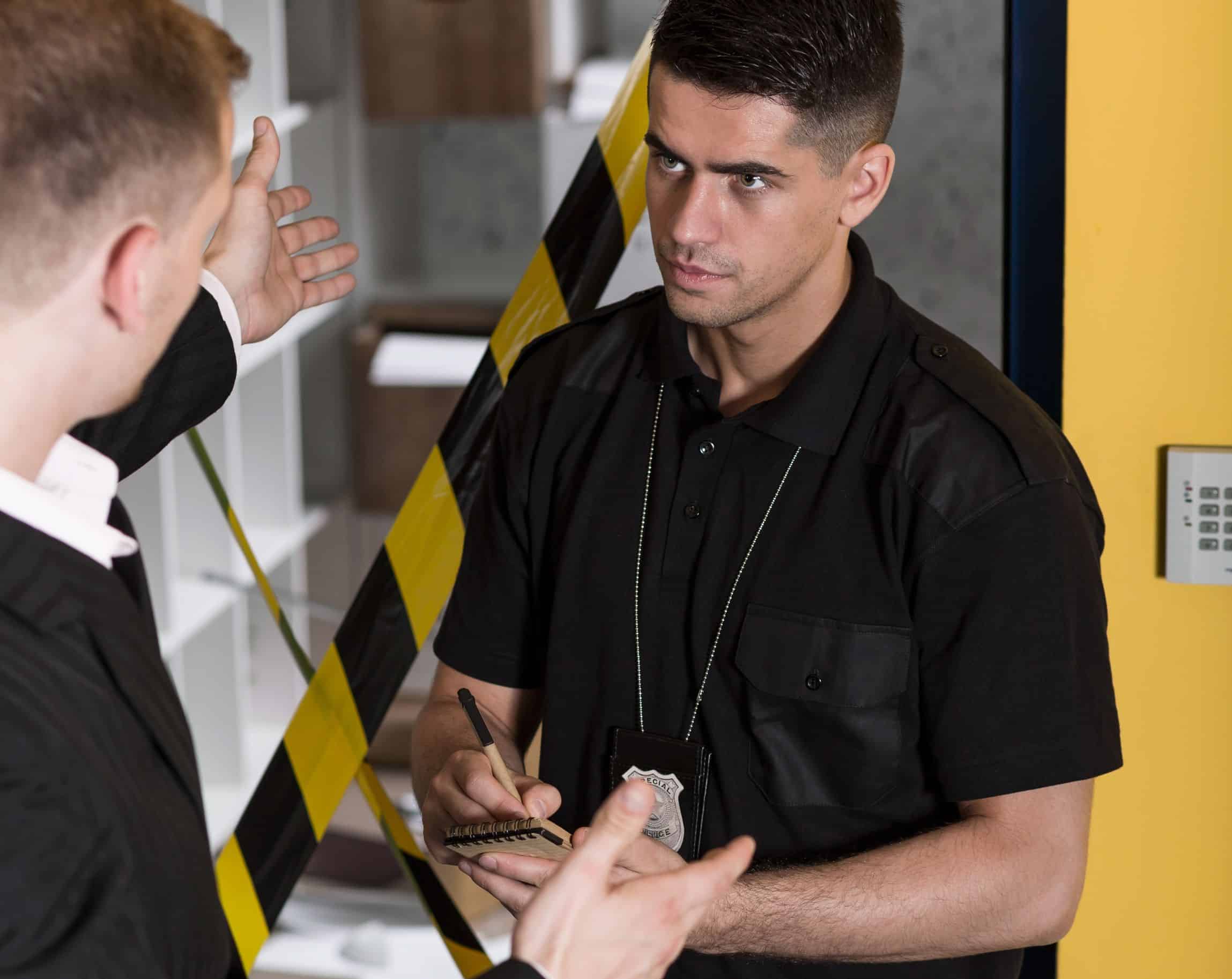Defending Against Police Informant Testimony
April 18, 2025

Posted by: Jacob E. Martinez
Category: Criminal Defense | Witness
A good witness can make or break a criminal case. Witnesses can bring charges against someone, and can even be the key to a conviction. Death sentences have been overturned because a witness recanted their testimony.
Therein lies the problem. A fair criminal justice system is not just the responsibility of prosecutors, lawyers, and judges. All citizens have to contribute to ensure fair trials and a fair system. – including witnesses.
That’s why the Colorado Springs Police Department has issued a video explaining to citizens how they can be good witnesses. Tips like remembering a persons’ distinguishing features and taking pictures (if it’s safe) are included in the video. That detailed information will help police identify the right criminal. The video also gives the phone number to the local police and sheriff’s office.
This video is a response to increased rates of car break-ins and other theft crimes around El Paso County. (Groups of teenagers have already been arrested for some of the break-ins.) Law enforcement agencies thought this was a good time to refresh citizens’ memories on what information witnesses needed to provide, especially because summer tends to bring on more crime.
There are two types of witnesses: “lay” witnesses and “expert” witnesses. Lay witnesses are considered “regular people,” like someone who happened to be in the same place where a theft crime occurred. Expert witnesses have a harder job. They use the knowledge they have gained in their specific field to prove things like malpractice or DNA results.
Police officers, despite their specialized role in society and law enforcement, have usually been considered “lay” witnesses. Lay witnesses aren’t required to demonstrate their expertise – anyone can be a lay witness.
However, a recent Colorado Supreme Court decision is changing who can testify as a lay witness. In People vs. Ramos, a case was appealed after an officer who had 19 years of experience dealing with blood evidence was allowed to testify as a lay witness.
The court ruled that he should have been qualified as an expert before becoming a witness to the trial. The process for qualifying an expert has been determined by multiple Supreme Court cases, and may leave some police officers out of the running.
If you are accused of a crime, there may be expert and lay witnesses testifying at your trial. With this new Supreme Court ruling, you should take extra care to examine these witnesses and make sure that they are properly classified.
As demonstrated in the video released by Colorado Springs police, there are good witnesses… and there are not-so-good witnesses. A witness who sees a theft crime and identifies the perpetrator as a different gender, race, or height, may lead police to believe that the wrong person committed the crime.
If you are brought to court due to a false accusation, it may be due to a witness who gave incorrect testimony to police. The testimony given by witnesses can be crucial to your case, so pay careful attention. If you believe a witness is giving false testimony or is mistaken, you may have to make that a main focus of your criminal defense strategy.
To learn more about preparing witnesses and arguing against false testimony, talk to a Colorado criminal defense lawyer.
About the Author:
Denver-based criminal defense and DUI attorney Jacob E. Martinez is a knowledgeable and experienced litigator with a record of success providing innovative solutions to clients facing criminal charges of any severity. Mr. Martinez has been designated a Top 100 Trial Lawyer by the National Trial Lawyers and has been awarded both the Avvo Client’s Choice Award and Avvo Top Attorney designation, evidencing his reputation for his exemplary criminal and DUI defense work and high moral standards.
Jury Trial - Not Guilty
Jury Trial - Not Guilty
Arapahoe 1st Degree Assault/Vehicular Assault
Jury Trial - Not Guilty
Denver Domestic Violence Assault Case
Jury Trial - Not Guilty
Denver D.V. Assault
Jury Trial - Not Guilty
Denver Careless Driving Resulting in Death
Jury Trial - Not Guilty
Jefferson County Felony Menacing
Jury Trial - Not Guilty
Adams County DUI
Jury Trial - Not Guilty
Jefferson County DUI
Jury Trial - Not Guilty
Jefferson County DUI
Jury Trial - Not Guilty
Jefferson Vehicular Assault/DUI
Jury Trial - Not Guilty
Jefferson County DUI
Jury Trial - Not Guilty
Boulder County DUI case
Jury Trial - Not Guilty
Arapahoe County DUI case
Jury Trial - Not Guilty
Adams County DUI case
Jury Trial - Not Guilty
Douglas County DUI case
Jury Trial - Not Guilty
Gilpin County DUI case
Dismissed
Broomfield County Probation Revocation case
Dismissal
Arapahoe County DUI case
Deferred Judgment
Arapahoe County DUI case
Deferred Judgment
Douglas County DUI case
Deferred Judgment
Larimer County DUI case
Deferred Judgment
Arapahoe County DUI Case
Deferred Judgment
Denver Felony Burglary Case
Deferred Judgment
Arapahoe County DUI case
Dismissed
Arapahoe County Protection Order Case
Dismissed
Golden Destruction of Property case
Dismissed
Jefferson County Protection Order case
Dismissed
Jefferson County Domestic Violence case
Dismissed and Sealed
Jefferson County DUI case
Dismissed
Denver Major Traffic Offense case
Dismissed and Sealed
Broomfield County Domestic Violence case
Dismissed
Summit County DUI Revocation
Dismissed
Denver DUI Revocation
Dismissed
Denver DUI Revocation
Dismissed
Denver DUI +.2 Involving Accident and Injury case
Dismissed
Denver DUI/Habitual Traffic Offender case
DISMISSAL
Denver District Aggravated Theft
Dismissed
Greenwood Village Assault case
Dismissal
Elbert County DUI
Dismissed
Arapahoe County Domestic Violence case
Dismissal
Jefferson County DUI
Dismissal
Denver Municipal Assault
Dismissed
Boulder County Domestic Violence Assault case
Dismissed
Wheat Ridge Assault case
Dismissed
Jefferson County DUI case, with 2+ Prior Convictions
Dismissed
Arapahoe County Domestic Violence case
Dismissed
Broomfield County Domestic Violence case
Dismissed with No Charges Filed
Jefferson County Felony Theft case
Dismissed
Arapahoe County Felony Theft case
Dismissed
Boulder County Felony Theft case

